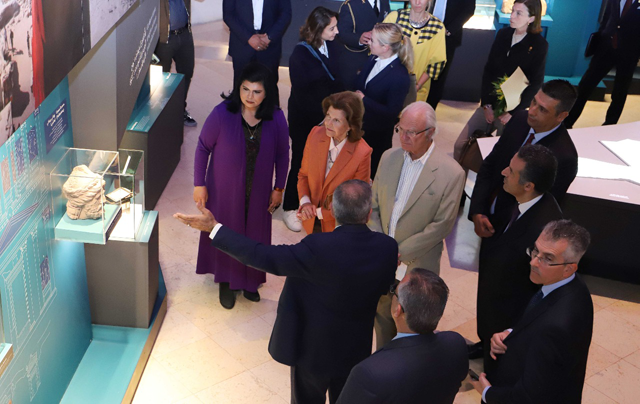You are here
Climate change symposium discusses challenges, joint action
By JT - Aug 06,2023 - Last updated at Aug 06,2023
AMMAN — The Economic and Social Council (ESC), in cooperation with Arab Trade Union Confederation (ATUC) and South Mediterranean Social Dialogue (SOLiD), on Sunday organised a symposium titled "Role of Social Dialogue in the Just Transition of the Green Economy."
ESC President Musa Shteiwi said that the risks of climate change are steadily increasing and are affecting all countries, especially developing nations.
The event seeks to boost efforts to deal with the climate change from a different perspective, the Jordan News Agency, Petra, reported.
Shteiwi added that Jordan faces climate threats that affect the entire region, noting that average annual rainfall has dropped by 50 per cent over the past five decades, with water per capita falling to 61 cubic metres per annum in 2021, which represents only 3 per cent of the World Health Organization's guidelines for water consumption. Water levels in the Dead Sea have receded by an average of three feet per year, he added.
Environment Minister Muawieh Radaideh said in his address that the government is committed to achieving Jordan’s climate targets and fulfilling the Kingdom’s international commitments.
Radaideh added that the government’s efforts are aligned with His Majesty King Abdullah's vision for unity in addressing climate change, as expressed by His Majesty's participation in UN Climate Change Conference (COP21) where the "Paris Climate Agreement" was issued.
“Climate change is the struggle of our generation," the minister said, urging collective action with insight, responsibility and determination to face its associated challenges.
Radaideh also noted that the Kingdom's international commitments on climate change and the national climate change policy have been approved by the Cabinet, in conjunction with Climate Change Conference (COP 27) held in Sharm El Sheikh, Egypt.
Jordan drew a climate action roadmap to reach carbon neutrality by 2050, which cannot be realised without joint national efforts, Radaideh said.
The minister added that Jordan was among the first countries to update its nationally determined contributions in an "ambitious" manner, as the Kingdom raised its emission reductions goal from 14 per cent to 31 per cent by 2030.
Related Articles
AMMAN — Environment Minister Muawieh Radaideh and UK Ambassador to Jordan Bridget Brind on Tuesday discussed means to enhance cooperation in
AMMAN — King Carl XVI Gustaf and Queen Silvia of Sweden on Thursday visited Manara Arts and Culture, a cafe and a cultural hub in the capita
AMMAN — Minister of Environment Muawieh Radaideh on Saturday highlighted the Kingdom's leadership in linking climate action with cultural an


















